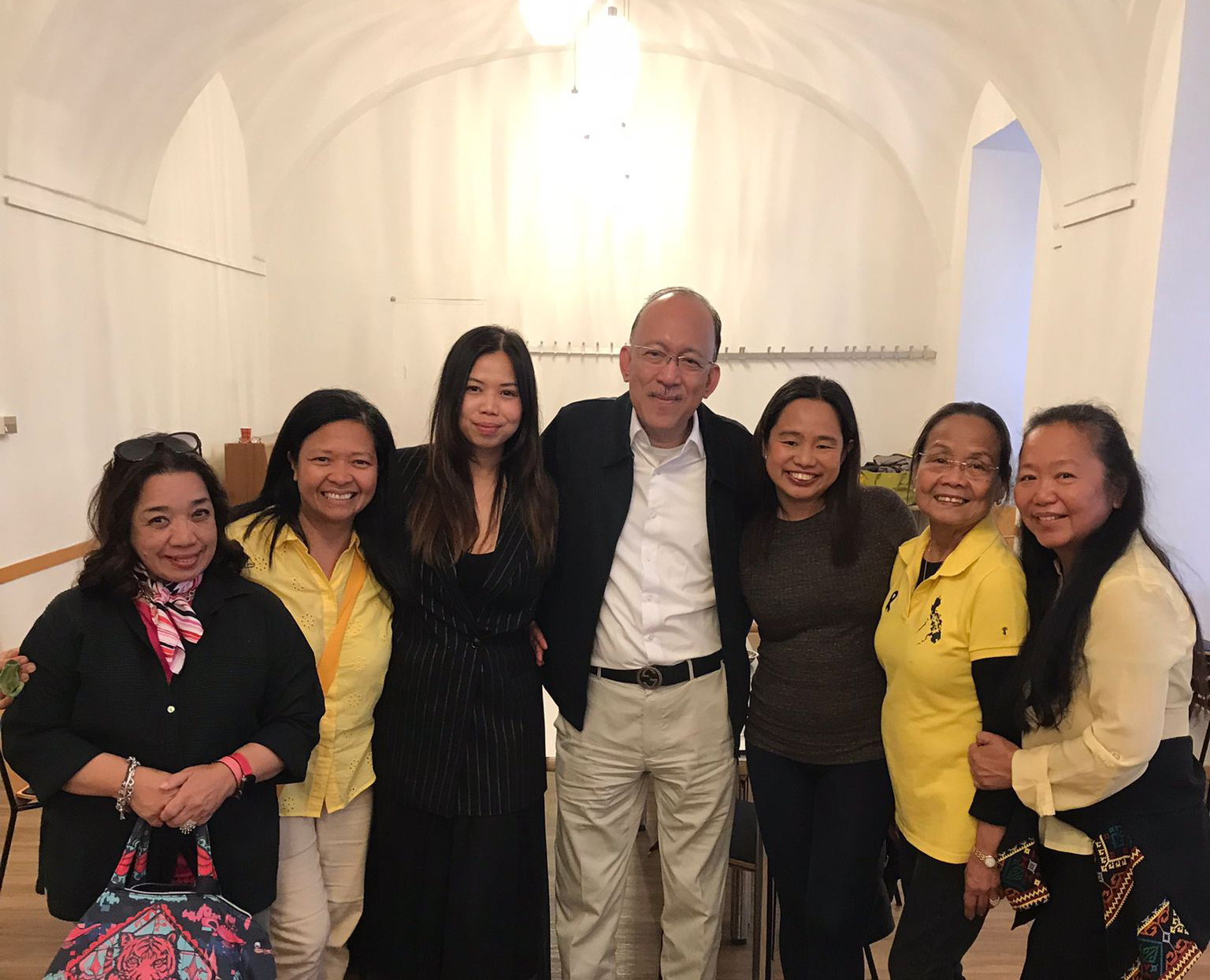While in Europe for a deeply personal occasion—his daughter’s wedding in Rome—Ronald Llamas, former Presidential Adviser on Political Affairs and long-time advocate for democratic reform in the Philippines, made a two-day detour to Vienna.
Far from a leisure stop, his visit reflected a deep and enduring commitment to political discourse and public service. On his first day in Vienna, Llamas held a closed-door talk with members of the Filipino community and civic leaders. The former adviser opened the session with an informal yet insightful reflection on his decades of political experience.
One memorable anecdote involved a basketball game with the late former President Benigno “Noynoy” Aquino III. “I remember throwing a hard foul,” Llamas laughed.
“Everyone else was being careful—it was the President, after all—but we go way back. I wasn’t about to treat him any differently on the court.”
The mood quickly turned serious as Llamas discussed the current political landscape in the Philippines, offering a critical but hopeful take on the state of opposition politics.
He emphasized the importance of building political alternatives from the ground up. “We need to start by identifying candidates who genuinely share a common vision for reform. Winnable candidates, yes, but also those with integrity and a deep commitment to the people,” he stressed.
“Even with ideological differences, collaboration is possible when there’s a shared dream. There is always hope for the Filipino people.”
Drawing parallels from global political movements, Llamas cited the power of coalition-building, referring to historical alliances among labor unions and grassroots organizations.
“In politics, identity matters. Erap had ‘Erap para sa mahirap.’ Tulfo has ‘Itulfo mo.’ These resonate. We have candidates with great platforms, but without compelling narratives, they struggle to connect.”
He also underlined the vital role of political branding. His message to aspiring leaders: good governance must be matched with strong, relatable messaging.
Photo: Aurora Villanueva
The second day brought Llamas to a more public stage—the United Nations headquarters in Vienna.
There, he engaged in a spirited open forum with various Filipino diaspora groups, ranging from youth advocates to long-time migrants. The session was both educational and strategic, as Llamas elaborated on his party’s platform and its relevance to Filipinos abroad. “Our overseas communities are not just remittance senders,” he told the audience. “They are voters, thinkers, and agents of change. You deserve to be part of the national conversation.”
Llamas joined attendees for a city tour via Vienna’s efficient public transportation system.
The simple act, he said, was a symbolic gesture—an immersion into what he hopes the Philippines can one day offer its own citizens.
Photo: Aurora Villanueva
Surrounded by Filipino-Austrian families and new acquaintances, Llamas sampled regional wines and sandwiches from Burgenland, sharing laughter and stories in the fading Viennese sun.
Though it began as a side trip from a family celebration, Ronald Llamas’ Vienna visit turned into a powerful reminder of the ties that bind public servants to their people—wherever they may be. His willingness to speak, listen, and walk alongside fellow Filipinos abroad underscored a rare kind of leadership: one rooted in both conviction and connection.


